Jade Varden's Blog, page 43
February 3, 2014
Writing 101: Writing with Expletives
Jon Stewart, who happens to be the most popular late night host, drops F-bombs on his TV show nightly. It gets beeped out of course, but the audience loves it and he's very good at it. Lots of people use expletives regularly when speaking. Doesn't that mean they should also be appearing in your books?
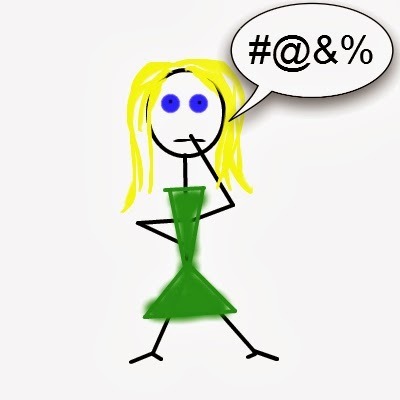
Four Little Letters
Gone With the Wind was controversial because it contained the word "damn." When the movie was made in 1939, "damn" was taken out of the script. Clark Gable insisted upon using the original dialogue, so the word made it into the film. Hollywood, and authors, have been pushing the envelope on what's considered acceptable in language ever since. I guess we have Margaret Mitchell to blame for our loss of literary innocence.
Or from another point of view, we have her to thank. Writing with expletives is so widely-done now, many people don't even think about it while they're reading those words. But others do notice, and that's why you always have to think about it when you're using them in your books.
Think about that. Re-read it if you need to. I'm telling you to think -- I would never tell you not to write with expletives if that's true to you and to your books. Sometimes, F-bombs are not just appropriate -- they're required.
I read this author all the time. His work is very funny but also very emotional, focusing strongly on romance and family life. He's an actual Catholic priest, and he writes primarily about Irish characters. And while I have never been to Ireland, from what I can glean from reading his work they use a great deal of "colorful euphemisms" in their everyday language. So this Catholic priest drops F-bombs all over his work. He does it not to be offensive or shocking, but because he's trying to accurately mirror the way his characters would speak. He's even said as much, in his work.
So if writing with expletives is okay for a man who has dedicated his life to God, I guess it's okay for me as well...and you, and any other author who wants to do it. But use expletives only if they lead something to the story. Don't use them just to use them. Don't try to be offensive. Because no matter how you use them or why, someone's going to get offended anyway. You shouldn't let that stop you...but don't let it goad you, either. If you feel good about what you've written, whether or not it's riddled with four-letter words, then that's all that matters at the end of the page.

Four Little Letters
Gone With the Wind was controversial because it contained the word "damn." When the movie was made in 1939, "damn" was taken out of the script. Clark Gable insisted upon using the original dialogue, so the word made it into the film. Hollywood, and authors, have been pushing the envelope on what's considered acceptable in language ever since. I guess we have Margaret Mitchell to blame for our loss of literary innocence.
Or from another point of view, we have her to thank. Writing with expletives is so widely-done now, many people don't even think about it while they're reading those words. But others do notice, and that's why you always have to think about it when you're using them in your books.
Think about that. Re-read it if you need to. I'm telling you to think -- I would never tell you not to write with expletives if that's true to you and to your books. Sometimes, F-bombs are not just appropriate -- they're required.
I read this author all the time. His work is very funny but also very emotional, focusing strongly on romance and family life. He's an actual Catholic priest, and he writes primarily about Irish characters. And while I have never been to Ireland, from what I can glean from reading his work they use a great deal of "colorful euphemisms" in their everyday language. So this Catholic priest drops F-bombs all over his work. He does it not to be offensive or shocking, but because he's trying to accurately mirror the way his characters would speak. He's even said as much, in his work.
So if writing with expletives is okay for a man who has dedicated his life to God, I guess it's okay for me as well...and you, and any other author who wants to do it. But use expletives only if they lead something to the story. Don't use them just to use them. Don't try to be offensive. Because no matter how you use them or why, someone's going to get offended anyway. You shouldn't let that stop you...but don't let it goad you, either. If you feel good about what you've written, whether or not it's riddled with four-letter words, then that's all that matters at the end of the page.
Published on February 03, 2014 05:30
February 2, 2014
Indie News: Indies Are Fighting Back
So, maybe self-pubishers and traditional publishers really can't get along after all. It seems that indies really are at war with traditional publishing...so I guess it's time for you to get out your battle paint and keyboards.

Deep Inside the Literary World
Indie authors are starting to speak out against the publishing industry and, apparently, the Authors Guild. It started with an article written about author Jennifer Weiner, and then more authors began to chime in from their personal blogs and other available platforms.
The gist of the argument is that traditional publishers and even their authors are shunning the self-published, and indies don't care for the treatment they're getting. One writer even accused traditionally published authors of being self-serving, and turning a cold shoulder to the indie community for personal gain (what he actually said is that authors and publishers are in bed together, but that's a pretty graphic metaphor).
The problem, some say, is that self-published authors can't join the Authors Guild...at least, not very easily. Membership is exclusive to those who are published by "established" US-based houses, which really means one of the Big 6. Also welcome: freelancers who work for general circulation periodicals (because there are sooo many of those still around), and self-published authors who earn $5000 in royalties over the course of 18 months. Statistically, this excludes 87 percent of indie authors.
Ironically, 54 percent of traditionally published authors don't meet this financial requirement, either. However, if those authors are published by big houses by the Authors Guild inclusion rules it doesn't matter. So why should indies have to reach a bar set by those who can't reach the same height themselves?
You can see how heated arguments might develop, and angry blog posts may suddenly appear online.
It costs $90 USD annually to belong to the Authors Guild. The group actually is attempting, along with several major publishers, to keep Amazon from selling books.
Some indies have gone to war with the best weapon they've got: words. Do you stand with them on the battle lines...or are you going to remain well away from this conflict?

Deep Inside the Literary World
Indie authors are starting to speak out against the publishing industry and, apparently, the Authors Guild. It started with an article written about author Jennifer Weiner, and then more authors began to chime in from their personal blogs and other available platforms.
The gist of the argument is that traditional publishers and even their authors are shunning the self-published, and indies don't care for the treatment they're getting. One writer even accused traditionally published authors of being self-serving, and turning a cold shoulder to the indie community for personal gain (what he actually said is that authors and publishers are in bed together, but that's a pretty graphic metaphor).
The problem, some say, is that self-published authors can't join the Authors Guild...at least, not very easily. Membership is exclusive to those who are published by "established" US-based houses, which really means one of the Big 6. Also welcome: freelancers who work for general circulation periodicals (because there are sooo many of those still around), and self-published authors who earn $5000 in royalties over the course of 18 months. Statistically, this excludes 87 percent of indie authors.
Ironically, 54 percent of traditionally published authors don't meet this financial requirement, either. However, if those authors are published by big houses by the Authors Guild inclusion rules it doesn't matter. So why should indies have to reach a bar set by those who can't reach the same height themselves?
You can see how heated arguments might develop, and angry blog posts may suddenly appear online.
It costs $90 USD annually to belong to the Authors Guild. The group actually is attempting, along with several major publishers, to keep Amazon from selling books.
Some indies have gone to war with the best weapon they've got: words. Do you stand with them on the battle lines...or are you going to remain well away from this conflict?
Published on February 02, 2014 05:30
February 1, 2014
Free Love, Free Words: Februray Event
I wrote a blog post recently about the importance of books and reading, and making these things more widely available. So I'm putting my money where my keyboard is, and I'm going to spend February spreading my love of reading. Around here, Valentine's Day lasts all month long. So all month long, you can get my newest book for free!
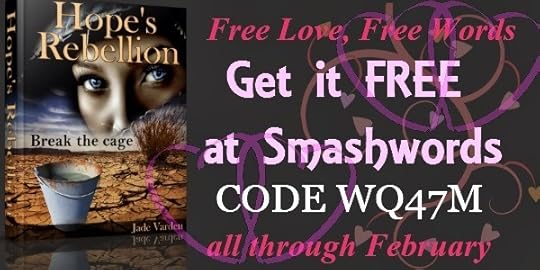
It's the Free Love, Free Words event, and it ends on February 28. My newest book, Hope's Rebellion, is the Book of the Month over at Goodreads so now is the perfect time for a month-long giveaway. To get your copy, download the book in any format at Smashwords. Use the code WQ47M to get the book at a 100% discount (FREE!).

It's the Free Love, Free Words event, and it ends on February 28. My newest book, Hope's Rebellion, is the Book of the Month over at Goodreads so now is the perfect time for a month-long giveaway. To get your copy, download the book in any format at Smashwords. Use the code WQ47M to get the book at a 100% discount (FREE!).
Published on February 01, 2014 13:33
Books on Film: Groundhog Day
Groundhog Day is a film that doesn't really fit this category, though it is a movie based on a story...and perhaps it's based on more then one story. Either way, this movie tells a good story. Even if it is the same story over and over and over...
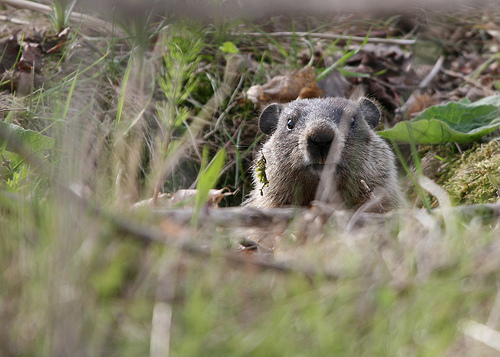
The Film
If you haven't seen Groundhog Day, I don't even want you to read this post. Go and watch it and then crawl out of that cave you're living in because how? This movie is a true cult classic and it's earned every single cable broadcast it's ever been given.
The amazing Bill Murray stars as weatherman Phil Connors, whose unfortunate duty it is to cover the famed Groundhog Day celebration in Punxsutawney, Pennsylvania. Yes it's a real place and yes, they have a huge festival every year (at Gobbler's Knob) in order to watch a groundhog climb out of his hole. The movie does a fair job of showing this event (despite the fact that the movie was not filmed in Pennsylvania anywhere).
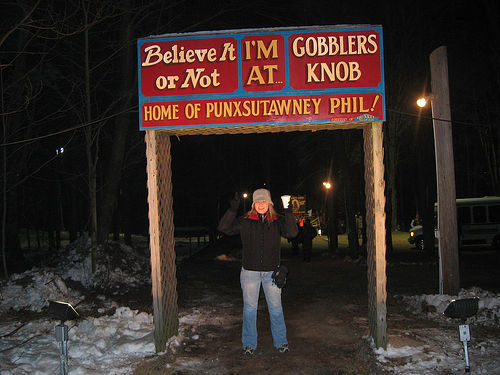
Andie MacDowell is Murray's co-worker and, we soon learn, love interest. He's not good enough for her by far...and this is why Phil is doomed to repeat Groundhog Day over and over and over again until he gets it right. It's great stuff, and Murray is fabulous in the role.
It's a great story and it's a fun plot. So fun, in fact, that's it been repeated and re-used in several Hallmark movie productions...or, um, so I hear. But is the film the original story?
Well...
The Book
The screenplay for Groundhog Day was written by Harold Ramis and Danny Rubin, and it's said to be based on a story idea from Rubin. And that may very well be true. But the plot itself definitely isn't an original idea.
Like I always say, there aren't any original ideas. Richard A. Lupoff, who wrote the short story "12:01 PM" knows that, too. He published his story in 1973 about a man stuck in a time loop, and it was even adapted in 1990 (before 1993 and Groundhog Day's breakout success). A lawsuit was brought against Columbia Pictures, but eventually dropped.
Maybe because someone tipped the lawyers off to the existence of "Shadow Play," an old episode of The Twilight Zone featuring a very similar plot. The original episode aired in 1961 about a man stuck in a recurring nightmare that ends with his execution. Heady stuff, I know.
In the end, it doesn't matter where the inspiration for Groundhog Day comes from. It's a cute movie starring Bill Murray about a holiday that very few people choose to feature...and that holiday happens tomorrow. So celebrate it by watching this movie -- and like the groundhog, dreaming of the end of winter.

The Film
If you haven't seen Groundhog Day, I don't even want you to read this post. Go and watch it and then crawl out of that cave you're living in because how? This movie is a true cult classic and it's earned every single cable broadcast it's ever been given.
The amazing Bill Murray stars as weatherman Phil Connors, whose unfortunate duty it is to cover the famed Groundhog Day celebration in Punxsutawney, Pennsylvania. Yes it's a real place and yes, they have a huge festival every year (at Gobbler's Knob) in order to watch a groundhog climb out of his hole. The movie does a fair job of showing this event (despite the fact that the movie was not filmed in Pennsylvania anywhere).

Andie MacDowell is Murray's co-worker and, we soon learn, love interest. He's not good enough for her by far...and this is why Phil is doomed to repeat Groundhog Day over and over and over again until he gets it right. It's great stuff, and Murray is fabulous in the role.
It's a great story and it's a fun plot. So fun, in fact, that's it been repeated and re-used in several Hallmark movie productions...or, um, so I hear. But is the film the original story?
Well...
The Book
The screenplay for Groundhog Day was written by Harold Ramis and Danny Rubin, and it's said to be based on a story idea from Rubin. And that may very well be true. But the plot itself definitely isn't an original idea.
Like I always say, there aren't any original ideas. Richard A. Lupoff, who wrote the short story "12:01 PM" knows that, too. He published his story in 1973 about a man stuck in a time loop, and it was even adapted in 1990 (before 1993 and Groundhog Day's breakout success). A lawsuit was brought against Columbia Pictures, but eventually dropped.
Maybe because someone tipped the lawyers off to the existence of "Shadow Play," an old episode of The Twilight Zone featuring a very similar plot. The original episode aired in 1961 about a man stuck in a recurring nightmare that ends with his execution. Heady stuff, I know.
In the end, it doesn't matter where the inspiration for Groundhog Day comes from. It's a cute movie starring Bill Murray about a holiday that very few people choose to feature...and that holiday happens tomorrow. So celebrate it by watching this movie -- and like the groundhog, dreaming of the end of winter.
Published on February 01, 2014 05:30
January 30, 2014
Writing 101: Finding Your Patron
I imagine that being a writer was a much more romantic occupation centuries ago. Once upon a time, wealthy nobles gave writers and other artists food, clothing, shelter and even money to help them master their craft. So it got me to wondering...is there anybody willing to do that today?

A Wealthy Patron
Storytelling bards used to travel between castles and keeps, sharing their tales for a warm meal, a nice bed and much welcome. The good ones even got to visit Kings and Queens. Pretty good stuff, right? Like, who wouldn't want to travel around just telling stories and visiting fabulous places?
Things are different today. The Internet makes it possible to share a story with the world without even getting out of bed in the morning. So the days of going to fancy homes and receiving fancy gifts are definitely over. The days of wealthy patrons who are going to give you food and shelter just so you can practice writing are over. In fact, if someone were to offer that to you it would be your obligation to question their motives. What do they want in return, that's the question.
However, there are opportunities out there for you if you're looking for a little practical support to help you ply your craft.
Grants provided by the government and private institutions actually give writers money to help them write. You will have to put together a full proposal and complete an application process, but you could end up receiving funds to help you finance your next project for all this effort.
There are many cities with their own foundations and endowments for the arts. Look for opportunities like this on a national and local level in order to cast the widest possible net.
If you have a lot of short stories, poems and other pieces of writing stocked up, you can also enter various writing contests that award a cash prize. There are always writing contests happening, so you can keep yourself busy with these throughout the year.
It isn't very likely that a King will give you a jewel-encrusted necklace when you leave the palace after a week's stay, but there is money out there for writers and other artists. Find it, try to get it and you may end up with your own fancy patron.

A Wealthy Patron
Storytelling bards used to travel between castles and keeps, sharing their tales for a warm meal, a nice bed and much welcome. The good ones even got to visit Kings and Queens. Pretty good stuff, right? Like, who wouldn't want to travel around just telling stories and visiting fabulous places?
Things are different today. The Internet makes it possible to share a story with the world without even getting out of bed in the morning. So the days of going to fancy homes and receiving fancy gifts are definitely over. The days of wealthy patrons who are going to give you food and shelter just so you can practice writing are over. In fact, if someone were to offer that to you it would be your obligation to question their motives. What do they want in return, that's the question.
However, there are opportunities out there for you if you're looking for a little practical support to help you ply your craft.
Grants provided by the government and private institutions actually give writers money to help them write. You will have to put together a full proposal and complete an application process, but you could end up receiving funds to help you finance your next project for all this effort.
There are many cities with their own foundations and endowments for the arts. Look for opportunities like this on a national and local level in order to cast the widest possible net.
If you have a lot of short stories, poems and other pieces of writing stocked up, you can also enter various writing contests that award a cash prize. There are always writing contests happening, so you can keep yourself busy with these throughout the year.
It isn't very likely that a King will give you a jewel-encrusted necklace when you leave the palace after a week's stay, but there is money out there for writers and other artists. Find it, try to get it and you may end up with your own fancy patron.
Published on January 30, 2014 05:30
January 29, 2014
Writing 101: How Do You Know You've 'Made It'?
Success is not an easy thing to define or measure. So how can you tell when you've "made it" as an author?

Being Successful
By conventional standards, success equals money. People who are known for wealth are considered to be very successful, even elite, and they're admired and envied for all that spare cash. Television shows like Lifestyles of the Rich and Famous and (much newer) Cribs prove that people are fascinated by wealth.
But the truth is, the majority of authors don't make a lot of money. Being an author is often equated with being an artist, and that profession is synonymous with starving. So all the beach houses and big mansions and Bentleys are, sadly, probably well out of your reach.
However, you can make some money with writing. And if you write a lot for lots of different companies, it's even possible to make a living as a writer. If you're living the dream of writing full-time, maybe that means you've made it...even if it feels like you can't always make ends meet financially.
If you have time to write and you're writing something that someone is reading or that someone is paying for and you like what you've written, then you've "made it." Don't measure your success in dollars and cents, because it won't ever add up no matter how much you make. Don't measure your success against someone else, or what anyone in your family says, or even by the statistics you find on blogs like mine. Measure your success by your own standards and ideals. When you dreamed of being an author, you probably weren't dreaming of being awash in riches. You were probably dreaming of being read. Achieve that, and you've achieved great success.

Being Successful
By conventional standards, success equals money. People who are known for wealth are considered to be very successful, even elite, and they're admired and envied for all that spare cash. Television shows like Lifestyles of the Rich and Famous and (much newer) Cribs prove that people are fascinated by wealth.
But the truth is, the majority of authors don't make a lot of money. Being an author is often equated with being an artist, and that profession is synonymous with starving. So all the beach houses and big mansions and Bentleys are, sadly, probably well out of your reach.
However, you can make some money with writing. And if you write a lot for lots of different companies, it's even possible to make a living as a writer. If you're living the dream of writing full-time, maybe that means you've made it...even if it feels like you can't always make ends meet financially.
If you have time to write and you're writing something that someone is reading or that someone is paying for and you like what you've written, then you've "made it." Don't measure your success in dollars and cents, because it won't ever add up no matter how much you make. Don't measure your success against someone else, or what anyone in your family says, or even by the statistics you find on blogs like mine. Measure your success by your own standards and ideals. When you dreamed of being an author, you probably weren't dreaming of being awash in riches. You were probably dreaming of being read. Achieve that, and you've achieved great success.
Published on January 29, 2014 05:30
January 28, 2014
Writing 101: Don't Get Lost in the Writing
Punctuation. Grammar. Sentence structure. Prepositions. Proper spellings. It's overwhelming to write a book, and frankly that's far too mild a word. But don't get lost in the writing while you're writing...because you may forget about the storytelling.
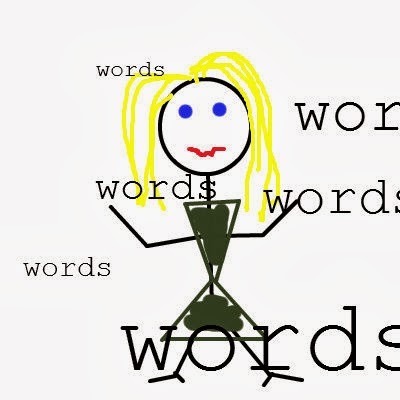
Technical Difficulties
I'm the first person to point to a misplaced comma or improperly capitalized word when it comes to published books. In fact, I've been known to go on full-scale rants when it comes to the mechanics of writing. I'm very interested in putting articles in the right place and avoiding the abuse of adverbs. I've gone 20 rounds with my very own employers about the existence of the word "alot" and I'll fixate on even the smallest mistakes when I find them. But I don't allow myself to get too bogged down in all that when I'm actually writing my own books. If I did, I wouldn't ever get past the first page.
The mechanics of writing are very important...but I've seen firsthand that it's not at all the most important thing about a book. I've read a half-dozen authors -- and I'm talking about well-known folks, here -- who in my opinion really can't write. Their structure is all off, their disregard for full sentences frightening and their propensity to avoid dialogue tags is way beyond unsettling. There are a lot of famous authors who don't pay a lot of attention to the mechanics of writing...but they're amazing storytellers, so I'm just about the only person who even cares.
When it come to storytelling vs. mechanics, it's always storytelling that wins out. So yes, edit your books. Try to use good grammar, and attempt to grasp the basics of punctuation. But don't get so bogged down in the details of the writing that the writing is all you think about. You need to keep your mind free to tell the story. In other words, you need to loosen up. Tell the story. Then go back and edit, and fix all those weird mistakes you made.

Technical Difficulties
I'm the first person to point to a misplaced comma or improperly capitalized word when it comes to published books. In fact, I've been known to go on full-scale rants when it comes to the mechanics of writing. I'm very interested in putting articles in the right place and avoiding the abuse of adverbs. I've gone 20 rounds with my very own employers about the existence of the word "alot" and I'll fixate on even the smallest mistakes when I find them. But I don't allow myself to get too bogged down in all that when I'm actually writing my own books. If I did, I wouldn't ever get past the first page.
The mechanics of writing are very important...but I've seen firsthand that it's not at all the most important thing about a book. I've read a half-dozen authors -- and I'm talking about well-known folks, here -- who in my opinion really can't write. Their structure is all off, their disregard for full sentences frightening and their propensity to avoid dialogue tags is way beyond unsettling. There are a lot of famous authors who don't pay a lot of attention to the mechanics of writing...but they're amazing storytellers, so I'm just about the only person who even cares.
When it come to storytelling vs. mechanics, it's always storytelling that wins out. So yes, edit your books. Try to use good grammar, and attempt to grasp the basics of punctuation. But don't get so bogged down in the details of the writing that the writing is all you think about. You need to keep your mind free to tell the story. In other words, you need to loosen up. Tell the story. Then go back and edit, and fix all those weird mistakes you made.
Published on January 28, 2014 05:30
January 27, 2014
Writing 101: Creating a Likeable Character
One of the best ways to create a book that readers will like is to start with a character that readers will like. So now you've got to know how to create a likeable character. It's really not as easy as it seems.
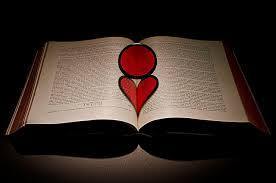
Manufacturing Like
What I've just asked you to do is actually insane. You're supposed to invent an entire person, out of nothing but your own imagination mind you, and now you have to figure out how to make me like that person. Only you and I have never met, and you don't really know that much about me. Oh, and it will help if I believe that your character is a real person...not just a character on a page.
This is why so many authors turn to drink to calm their nerves. Creating a likeable character is actually a really hard thing to do, and lots of writers just can't figure out the secret formula. But never fear, because I know it.
Lots of authors who offer tips will tell you lots of different things about character creation. But when it comes right down to it, there's just one way to create a likeable character: make them real. If I feel anything about this character, you've just created a great one. But there are some tricks you can use to bring out that emotion, and render your character likeable.
The obstacle: Give your character some sort of frightening obstacle to overcome. Give them an antagonist, perhaps, or some problem (such as being dirt poor) that makes it easier to root for them. Like often begins with fandom. The redeeming quality: Of course, it helps if your character has some trait that makes them admirable. A talent, a charitable heart, great courage in the face of opposition -- give them something that will make others respect them. From respect and admiration, like is easily born. The awareness: Want to be tricky and create a multi-faceted character who is both good and bad? If your character does bad things or contains flaws, give them some self-awareness. If they know they are doing bad and they feel remorse, it's much easier to like this character. After all, everyone has done something bad.The look: It's much easier to like a character who looks like a person. I always caution authors against creating characters who are too physically perfect. No one considers themselves to be physically perfect, so an extraordinarily beautiful character can be very off-putting.
The truth is, there's no real formula to creating a likeable character. Give them traits and thoughts and feelings that make them seem like a real person, and there will be readers who like that character. But make your character too perfect or powerful or divine, or too evil and unaffected, and it's going to be hard to summon up any affection.

Manufacturing Like
What I've just asked you to do is actually insane. You're supposed to invent an entire person, out of nothing but your own imagination mind you, and now you have to figure out how to make me like that person. Only you and I have never met, and you don't really know that much about me. Oh, and it will help if I believe that your character is a real person...not just a character on a page.
This is why so many authors turn to drink to calm their nerves. Creating a likeable character is actually a really hard thing to do, and lots of writers just can't figure out the secret formula. But never fear, because I know it.
Lots of authors who offer tips will tell you lots of different things about character creation. But when it comes right down to it, there's just one way to create a likeable character: make them real. If I feel anything about this character, you've just created a great one. But there are some tricks you can use to bring out that emotion, and render your character likeable.
The obstacle: Give your character some sort of frightening obstacle to overcome. Give them an antagonist, perhaps, or some problem (such as being dirt poor) that makes it easier to root for them. Like often begins with fandom. The redeeming quality: Of course, it helps if your character has some trait that makes them admirable. A talent, a charitable heart, great courage in the face of opposition -- give them something that will make others respect them. From respect and admiration, like is easily born. The awareness: Want to be tricky and create a multi-faceted character who is both good and bad? If your character does bad things or contains flaws, give them some self-awareness. If they know they are doing bad and they feel remorse, it's much easier to like this character. After all, everyone has done something bad.The look: It's much easier to like a character who looks like a person. I always caution authors against creating characters who are too physically perfect. No one considers themselves to be physically perfect, so an extraordinarily beautiful character can be very off-putting.
The truth is, there's no real formula to creating a likeable character. Give them traits and thoughts and feelings that make them seem like a real person, and there will be readers who like that character. But make your character too perfect or powerful or divine, or too evil and unaffected, and it's going to be hard to summon up any affection.
Published on January 27, 2014 05:30
January 22, 2014
Wednesday, Bloody Wednesday
The first Amazon review for my newest novel, Hope's Rebellion, unexpectedly appeared last night and I couldn't be more pleased...though some might think that reaction is strange.
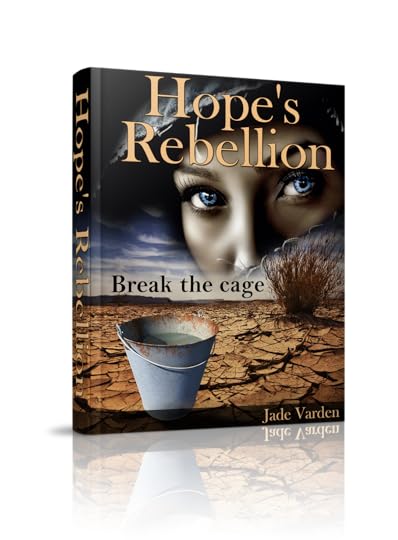
Not YA?
In a review that immediately calls the book violent, the reader said that the inclusion of "rapes, murders and beatings" make the novel seem a little less than YA. It's a fair criticism, and not unexpected (coming from someone who isn't familiar with my usual murder-soaked styled of writing), but happily he does laud the book as a "page-turner," and said he "raced through it in a couple of days."
So apparently it's "unexpectedly bloody," but not unpalatable. In my eyes, it's totally a rave review (because the reviewer didn't say it was the worst book he's ever read). Get your own copy of the book to see if you agree with the assessment. And if you're not sure you want to buy it, get a free sample of the first three chapters -- just click my "free book stuff" link at the top.

Not YA?
In a review that immediately calls the book violent, the reader said that the inclusion of "rapes, murders and beatings" make the novel seem a little less than YA. It's a fair criticism, and not unexpected (coming from someone who isn't familiar with my usual murder-soaked styled of writing), but happily he does laud the book as a "page-turner," and said he "raced through it in a couple of days."
So apparently it's "unexpectedly bloody," but not unpalatable. In my eyes, it's totally a rave review (because the reviewer didn't say it was the worst book he's ever read). Get your own copy of the book to see if you agree with the assessment. And if you're not sure you want to buy it, get a free sample of the first three chapters -- just click my "free book stuff" link at the top.
Published on January 22, 2014 11:30
Writing 101: You Should Be Writing Articles...for Free
As a self-published author, you're going to have to do all sorts of things to get readers to notice you. It's necessary to join Twitter, to participate in forums, to find potential fans and engage with them. Social media is great, but at the end of the day you want people to be interested in your writing. So give them stuff to be interested in.

Free Articles
Okay, so the goal of publishing is to get your words read. You're an artist, you have a voice and a viewpoint and something to share with the world. But you also live in the real world, and that costs money. So clearly, it's ideal to make money from your writing. Creating free articles seems to be at odds with this goal.
But you're wrong for thinking that, and I'm about to tell you why: publicity is invaluable. Getting your name out there with a byline is so worthwhile, you should be paying the Internet for allowing you to do it. But you don't have to pay. In fact, there may be a way you can earn a little extra income from your "free" articles -- if you play your words right.
What to writeFirst, you've got to figure out what sort of articles you will write. It's not enough to just write about what interests you, and throw the content out here. Ideally, you've got to find a way to link it to your brand and your books.
For example, I write YA novels. So maybe I'll write some free articles about back to school fashion, or prom looks, or how to balance schoolwork with athletics and social activities. This content is all geared toward teens, my audience, to get them interested in me as a writer. Once I draw them in, I hit them with information about my books. See how it works?
Where to writeYou've got an idea of the type of content you will create. Now, you need somewhere to publish it. Luckily, the Internet is full of websites that want content -- particularly when it's free.
Blog: Blogs are among the easiest websites to create for free, and there are all sorts of ways you can customize yours. Create a free blog and put new content on it as often as possible to establish a regular base of readers. A blog also gives you a platform to promote all your books and writing endeavors. Yahoo voices: Anyone can post content to Yahoo Voices anytime. Sign up for a free contributor account and start writing. You can even earn a little bit of revenue from articles you post here, so it's a great opportunity for self-promoting indies. Huffington Post: The Huffington Post is one of the most-visited sites on the Internet, and that's largely thanks to the bloggers. Visit the site to learn how to become one of them, but be warned: HuffPo doesn't pay bloggers anything. Go fish: Look for websites that fit your particular niche and expertise. Send them free articles in hopes that they'll get published, and don't forget to promote, promote, promote if you get published anywhere.
Tying it all together
So you've found so me articles to write and some places to publish them. Now you've got to tie that content into your brand and your books. How? The About the Author box, of course. Craft a great bio that explains why you're an expert in this field, mention your books and don't forget to include the relevant links.

Free Articles
Okay, so the goal of publishing is to get your words read. You're an artist, you have a voice and a viewpoint and something to share with the world. But you also live in the real world, and that costs money. So clearly, it's ideal to make money from your writing. Creating free articles seems to be at odds with this goal.
But you're wrong for thinking that, and I'm about to tell you why: publicity is invaluable. Getting your name out there with a byline is so worthwhile, you should be paying the Internet for allowing you to do it. But you don't have to pay. In fact, there may be a way you can earn a little extra income from your "free" articles -- if you play your words right.
What to writeFirst, you've got to figure out what sort of articles you will write. It's not enough to just write about what interests you, and throw the content out here. Ideally, you've got to find a way to link it to your brand and your books.
For example, I write YA novels. So maybe I'll write some free articles about back to school fashion, or prom looks, or how to balance schoolwork with athletics and social activities. This content is all geared toward teens, my audience, to get them interested in me as a writer. Once I draw them in, I hit them with information about my books. See how it works?
Where to writeYou've got an idea of the type of content you will create. Now, you need somewhere to publish it. Luckily, the Internet is full of websites that want content -- particularly when it's free.
Blog: Blogs are among the easiest websites to create for free, and there are all sorts of ways you can customize yours. Create a free blog and put new content on it as often as possible to establish a regular base of readers. A blog also gives you a platform to promote all your books and writing endeavors. Yahoo voices: Anyone can post content to Yahoo Voices anytime. Sign up for a free contributor account and start writing. You can even earn a little bit of revenue from articles you post here, so it's a great opportunity for self-promoting indies. Huffington Post: The Huffington Post is one of the most-visited sites on the Internet, and that's largely thanks to the bloggers. Visit the site to learn how to become one of them, but be warned: HuffPo doesn't pay bloggers anything. Go fish: Look for websites that fit your particular niche and expertise. Send them free articles in hopes that they'll get published, and don't forget to promote, promote, promote if you get published anywhere.
Tying it all together
So you've found so me articles to write and some places to publish them. Now you've got to tie that content into your brand and your books. How? The About the Author box, of course. Craft a great bio that explains why you're an expert in this field, mention your books and don't forget to include the relevant links.
Published on January 22, 2014 05:30



